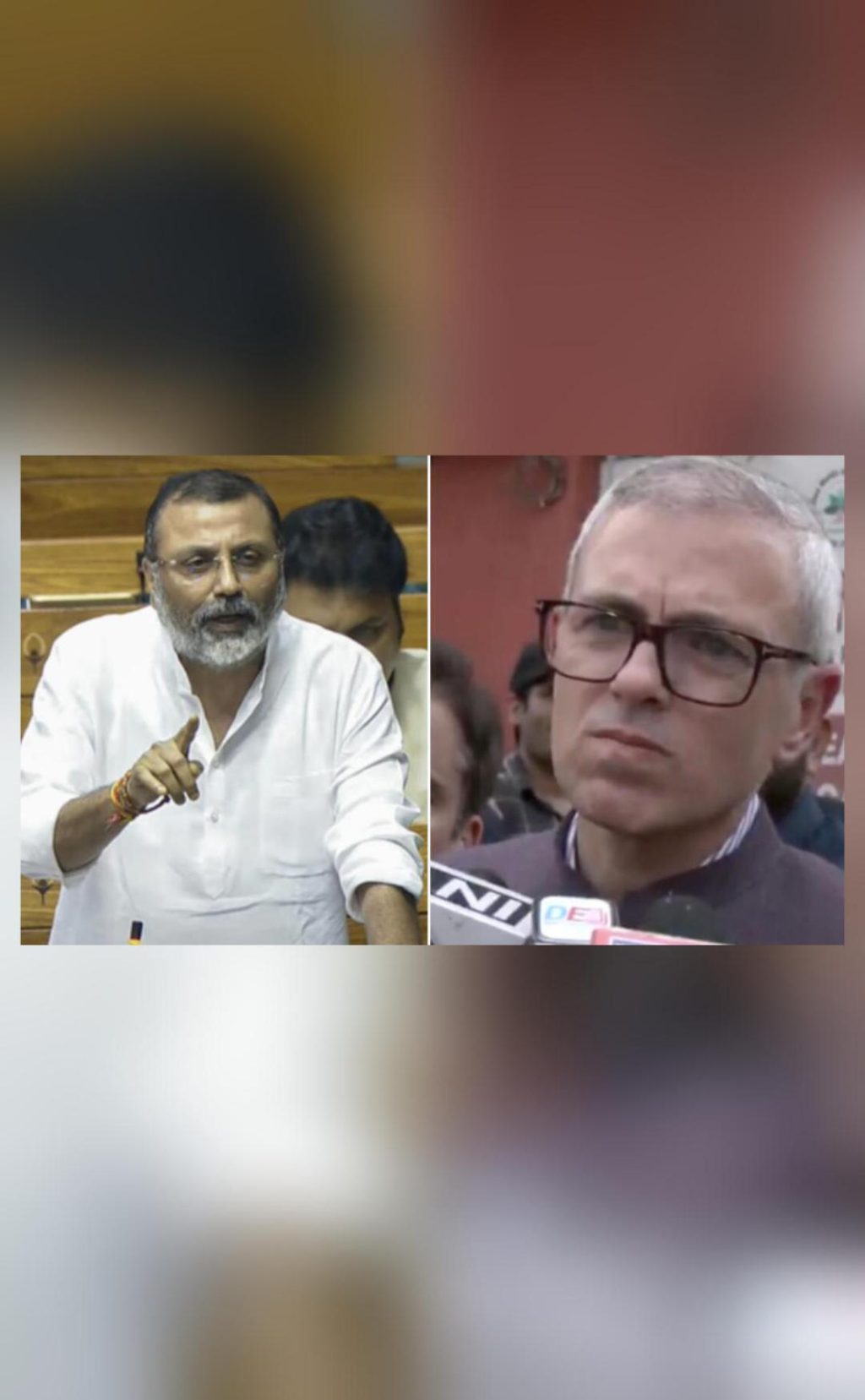
SC has power to review govt’s decisions: Omar on Dubey’s remark
The recent remarks made by BJP MP Nishikant Dubey about the Supreme Court have sparked a heated debate in the political circles. Dubey had stated that the Supreme Court does not have the power to review government decisions. However, Jammu and Kashmir Chief Minister Omar Abdullah has strongly disagreed with Dubey’s views, stating that the Supreme Court has been given the power to review decisions taken by the government.
In a recent interview, Abdullah said, “Was Indira Gandhi’s decision to impose emergency not challenged in the courts? It was challenged. If someone approaches the Supreme Court, it should not be given political colour.” He emphasized that the Supreme Court has the power to review government decisions and that it is not limited to any particular political party.
Abdullah’s remarks come in the wake of Dubey’s comments, which sparked a controversy in the political circles. Dubey had said that the Supreme Court should not meddle in the affairs of the government and that it should focus on its constitutional duties. He also stated that the Supreme Court does not have the power to review government decisions, as it is not mentioned in the Constitution.
However, Abdullah disagreed with Dubey’s views, stating that the Supreme Court has the power to review government decisions under the doctrine of judicial review. Judicial review is a constitutional doctrine that allows the Supreme Court to review the actions of the government and declare them unconstitutional if they violate the fundamental rights of citizens.
Abdullah emphasized that the Supreme Court has been exercising its power of judicial review for decades, and it has been instrumental in protecting the rights of citizens. He cited several examples of the Supreme Court’s interventions in government decisions, including the famous case of Indira Gandhi’s decision to impose emergency in 1975.
During the emergency, Gandhi’s government suspended civil liberties and imposed press censorship. However, the Supreme Court intervened and declared the emergency invalid. The court also ordered the release of political prisoners and lifted the press censorship.
Abdullah also pointed out that the Supreme Court has been instrumental in protecting the rights of marginalized communities. He cited the example of the court’s intervention in the case of the Dalit community, which had been denied access to a temple in the state of Uttarakhand. The court ordered the government to allow the Dalits to enter the temple, citing the constitutional right to equality.
Abdullah’s remarks have been widely welcomed by legal experts and civil society groups. They have emphasized that the Supreme Court has the power to review government decisions and that it is essential for protecting the rights of citizens.
In conclusion, Omar Abdullah’s remarks have emphasized the importance of the Supreme Court’s power to review government decisions. The court has been exercising its power of judicial review for decades, and it has been instrumental in protecting the rights of citizens. Dubey’s remarks have been widely criticized, and Abdullah’s comments have been seen as a strong defense of the Supreme Court’s role in protecting the rights of citizens.






